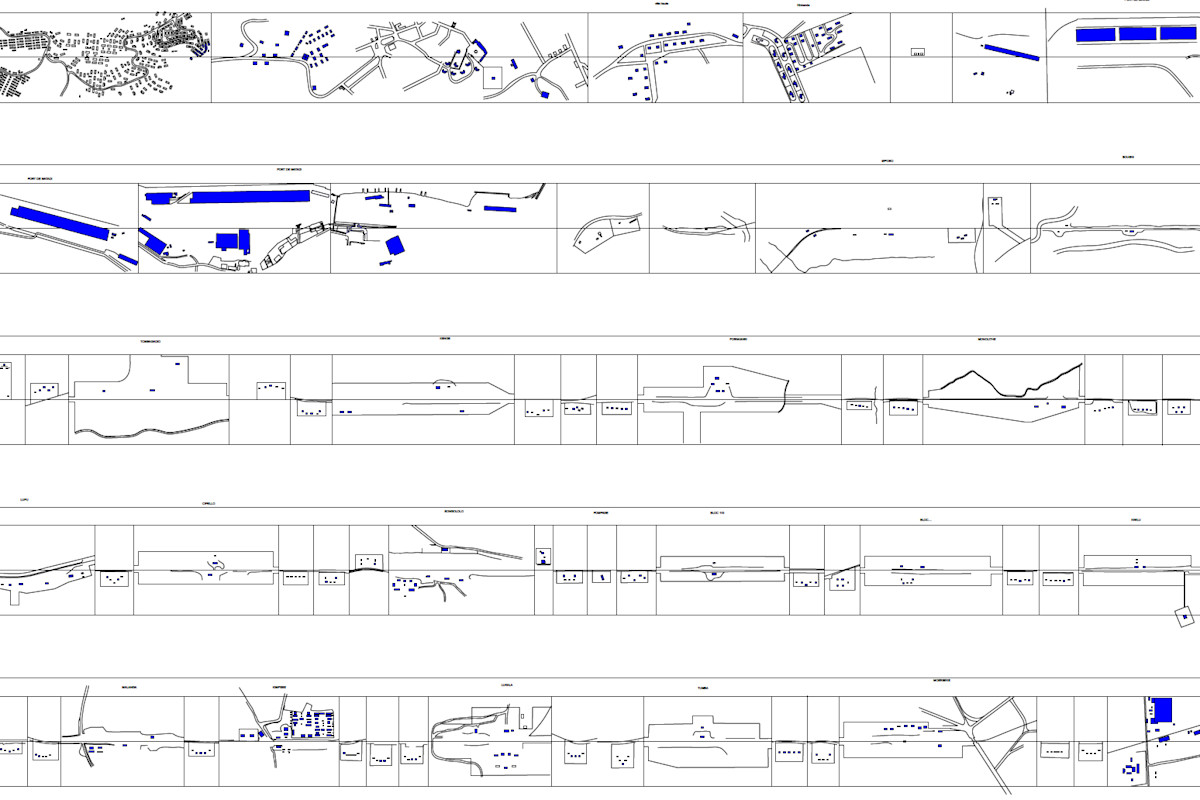The exhibition presents research conducted by students at the Department of Architecture and Urban Planning in recent years into the new spatial order that was introduced by the colonial railway network in Africa. A cartographic analysis follows the trajectories of railway lines that opened the Central African region – from Cape Town (South Africa), Beira (Mozambique), Lobito (Angola), Pointe Noire (Congo-Brazzaville) and Dar-es-Salaam (Tanzania) – and shows how flows of goods and people took place across colonial borders. Two specific railways lines in the former Belgian colony are depicted from another perspective in atlases: The Matadi-Kinshasa connection transformed the existing region into a colonial production landscape, dotted with plantations, factories, labour camps and power stations. The B.C.K. railway line, which connected Port-Francqui to the Katanga mining basins, facilitated the movement of workers and brought about significant demographic shifts that show how the local population responded to the new spatial order.
Curators: Johan Lagae, Robby Fivez
Exhibition opening (16 03 22): programme / registration / online participation
Opening hours: Thursday - Saturday: 14:00 – 18:00
In collaboration with the Department of Architecture and Urban Planning, Ghent University.
Johan Lagae is Professor of Architectural History at the University of Ghent, where he obtained a PhD in 2002. His research focuses on colonial and post-colonial architecture and urbanism in Central Africa, and he has also published on colonial building heritage and colonial photography. In 2007, he was chercheur invité at the Institut National de
l’Histoire de l’Art in Paris, and more recently, a fellow at the Institut des Études Avancées in the same city. He has compiled two books about the history and architecture of Kinshasa and has curated numerous exhibitions relating to the Congo and Africa, from The Memory of Congo: The Colonial Era (2005), and Congo belge (in images) (in collaboration with Magnum photographer Carl De Keyzer, 2010), to A chacun sa maison. Housing in the Belgian Congo 1945-1960 (Brussels, 2018).
Robby Fivez graduated in 2015 as an architect and engineer. From the fall of 2015 onwards, he has been employed as a PhD researcher at Ghent University, first in the framework of the FWO-funded project ‘Tout le Congo est un Chantier’, now as a research and teaching assistant. In his current research he confronts the fields of construction
history and colonial history, understanding the material processes behind the production of the colonial built environment. He is currently writing his PhD-dissertation under the working title A Concrete State. Building Ambitions in the (Belgian) Congo, 1908-1964. In a side-track of this research, he started to investigate the transformation of the landscape along the Matadi-Kinshasa railway line. Robby participated in international conferences and workshops and published research papers and articles, among others in the Architecture Beyond Europe journal and the Journal of Landscape Architecture.
